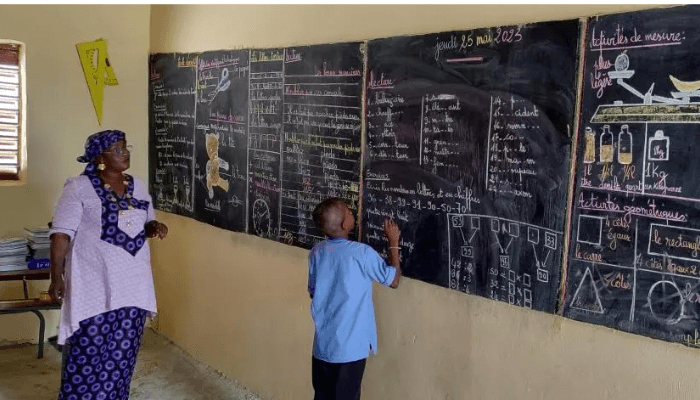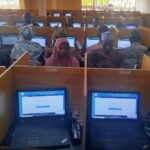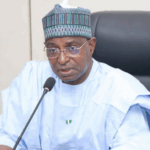What is needed to ensure that every Nigerian child can read, write and speak on grade level? For decades, this question has roiled the corridors of education policymakers, where the learning crisis is both pervasive and urgent.
A quarter of a billion children and youth worldwide are out of school, according to UNESCO's latest global education monitoring report. Yet the crisis extends beyond those who never enter the classrooms.
A 2022 World Bank global report estimates that 70 percent of 10-year-old children in low- and middle-income countries are unable to read and understand age-appropriate text.
Similarly, UNICEF reports that 70 percent of Nigerian children in primary school cannot read with meaning or solve simple mathematics problems, and millions of children remain out of school.
The changing demands of the global economy, accelerated by the disruptions of COVID-19, have reinforced the urgent need for education systems that can move with the times.
Preparing learners for the future requires innovative instructional approaches, methods that go beyond traditional, often static classroom practices.
These challenges are even more pronounced in Nigeria, where cultural diversity, linguistic complexity, and uneven economic development complicate efforts to provide equitable learning opportunities.
It is estimated that the English language is accessible to less than 30 percent of the Nigerian population. With the continent's youth population expected to account for 42 percent of the global total by 2030, the urgency to close these gaps has never been greater.
Global efforts to address the learning crisis
So again, the question is not whether children are learning, but whether the right approach is being implemented to overcome the learning crisis.
Encouragingly, the global conversation is beginning to shift from intuition-driven programs to evidence-based interventions, designed, tested and refined initiatives based on measurable outcomes.
Countries such as the Philippines, Ghana and Uganda have adopted strategies such as mother tongue education, early grade reading interventions and structured remedial programs to accelerate basic education.
In Uganda, a US-supported program offered structured instruction in nine local languages with trained teachers and age-appropriate materials.
Within three years, reading scores increased rapidly, while dropout rates declined, showing the effectiveness of combining mother tongue education with systematic pedagogy.
These experiences confirm that when children are taught in language they understand, and instruction is tailored to their learning level rather than grade, they acquire foundational skills faster and more effectively.
THE NIGERIAN CASE OF LEARNOVATE-FLIP:
The Ondo Foundation has advocated a mixed-methods approach that combines preventive and remedial interventions to strengthen foundational literacy and numeracy.
The Foundation recently launched two reports highlighting the impact of its Foundational Learning Improvement Programme, following the successful completion of its pilot phase in 80 schools in Adamawa, Ebonyi, Plateau and Sokoto states.
The program combined two complementary approaches. Early Grade Reading (EGR) introduced structured instruction in both mother tongue and English for pupils in Primary 1-3, strengthening literacy at the point where it matters most, and Teaching at the Right Level (TARL) supported Primary 4-6 pupils who had progressed without mastering basic skills, providing targeted remedial lessons in literacy and numeracy.
Together, these approaches ensured that children were not left behind at different stages of learning: younger pupils built strong foundations, while older pupils were allowed to move forward.
There were large, measurable gains within just six months of implementation: the share of paragraph readers reading Hausa paragraphs increased from 19 percent at baseline to 43 percent (+24 percentage points) at endline; The share in English paragraph reading increased from 18 percent to 45 percent (+27 points); And the number of learners able to solve two-digit subtraction has increased from 13 percent to 48 percent (+35 points).
At the same time, the share of non-readers declined sharply (Hausa non-readers declined by 34 points; English non-readers declined by 35 points).
On the preventive side, the EGR model improved reading achievement for Primary 1-3 pupils in 60 schools, prioritizing the use of mother tongue instruction where appropriate while transitioning learners to English.
The aim of this pilot is to demonstrate that an integrated approach to school support can significantly improve pupils' reading achievement in Years P1-3. EGR materials and assessment tools in mother tongue were deployed in Ebonyi and Sokoto, while materials in English were used in Plateau State as a control state.
The combination of strong, scripted early reading lessons in languages understood by children, along with materials and teacher guidance support, was the foundation of the rapid gains in early literacy achieved in this project.
Both approaches address the dual problems that hinder learning in many Nigerian classrooms: language barriers and heterogeneous learning levels.
Also recognizing that teacher capacity and community engagement are important, the Foundation has incorporated training and resource support into the program to ensure sustainability.
Across all four states, the program enrolled more than 5,160 out-of-school children, provided 2,000 back-to-school kits, and strengthened classroom instruction through the training of 416 teachers.
To sustain the reforms, the Foundation distributed over 40,800 teaching and learning materials, while also setting up 120 community reading hubs, directly benefiting 10,800 learners. 60 School-Based Management Committees (SBMCs) were also activated, advising 1,140 members.
These achievements reflect the Foundation's broader Learnovate strategy, which prioritizes innovation, foundational learning and sustainability within the education system.
By investing in teacher capacity, providing high-quality learning materials and fostering community engagement, the Foundation ensures that children are taught in languages they understand and at levels commensurate with their abilities.
As Nigeria works towards 2030 and Sustainable Development Goal 4 of inclusive and equitable quality education, the evidence is clear: solutions exist that can rapidly and scalable improve basic education.
The findings from our LEARNOVATE-FLIP pilots demonstrate that learning poverty can be reduced with the right mix of early grade support, remedial intervention, teacher capacity building and community engagement.
Uduimoh, head of Ondo Foundation, writes from Lagos.











